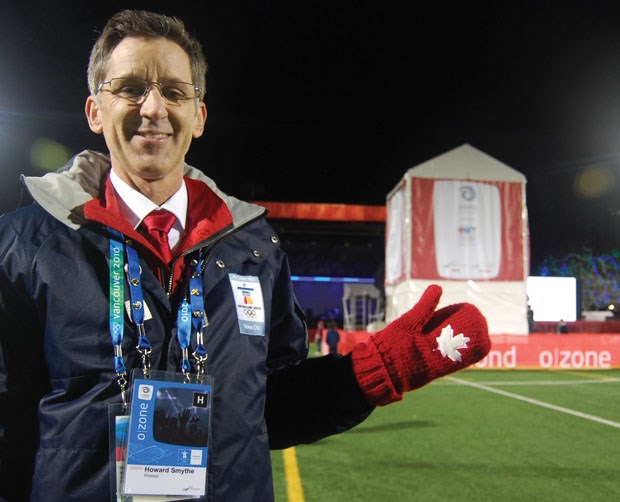Smiles tucked inside blue hooded jackets with waving red mittens. It's an image that is sketched in the memories of many Richmondites. Those were the volunteers that, in part, made the 2010 Winter Olympics so memorable for people in Richmond, be it at the Canada Line stations, the oval or the 'O' Zone at Minoru Park.
Those 1,500-odd volunteers formed the foundation for a volunteer management database the City of Richmond created to better organize volunteers throughout the city. The database now contains roughly 7,300 individuals, who can match their skills with the needs of city events and programs in the community.
"The city has a large core of programs that rely on volunteers. Pretty much every city facility engages volunteers," said city spokesperson Ted Townsend. "The database has made it easier for organizations to recruit volunteers, especially non-profits who are run by volunteers themselves. I would never say we invented volunteering because that's something inherent in our culture. but what we have done - by working with others - is bring a little more coordination for people."
Last year, the city claimed more than 50,000 volunteer hours were logged through the database, which grew by 35 per cent compared to the year prior.
That doesn't include the countless hours done throughout the community without the city's guidance.
Another volunteer match-making program exists with Volunteer Richmond, which partners with a number of non-profit organizations that can list opportunities on its website www.volunteerrichmond.ca.
Multicultural Community Services finds volunteers through a variety of means: the city database, Volunteer Richmond as well as grassroots connections, explained RMCS volunteer coordinator Thuy Nguyen.
"We count on volunteers on a daily basis. They're the backbone of our organization. They bring a vast array of skills, energy and passion. And we are always looking for more," said Nguyen. Roughly 100 volunteers help RMCS, Nguyen said, and they range from students to seniors, wealthy and poor, and men and women.
According to the Survey of Giving, Volunteering and Participating, a Statistics Canada study from 2010, more than 13.3 million Canadians over the age of 15 (or 47 per cent) volunteered in some capacity. The numbers indicated an eight per cent rise in volunteers since 2004.
However, the majority of volunteer work is done by a minority of volunteers: Ten per cent of all volunteers accounted for 53 per cent of total volunteer hours.
Sports and recreation organizations accounted for 19 per cent of all volunteer hours in Canada, with social services close behind at 18 per cent. Religious groups accounted for 15 per cent of all volunteer hours.
The study found that, in general, younger Canadians are more likely to volunteer, however they devote fewer hours to their cause than do older Canadians.
It is also more likely that a university or college graduate volunteers as opposed to a high school graduate. And since education and wealth are correlated, the study found that those with higher incomes were found to volunteer more than people with low incomes.
While it was found marriage or common-law partnerships made no difference to volunteering, it was found that having school-aged children increased the likelihood of volunteering, given the inherent involvement people have in schools. That said, those without children donated more of their time, on average, to their particular cause. Jocelyn Wong, general manager of Volunteer Richmond, said Richmond's volunteer core is special in that it is geared toward its unique demographics - newcomers to Richmond as well as an aging population.
Volunteers play a role in the whole gamut of city life, added Townsend. For example, members of the Richmond Amateur Radio Club are often essential during an emergency as they provide ham radio communications.
National Volunteer Week is April 6-12.



